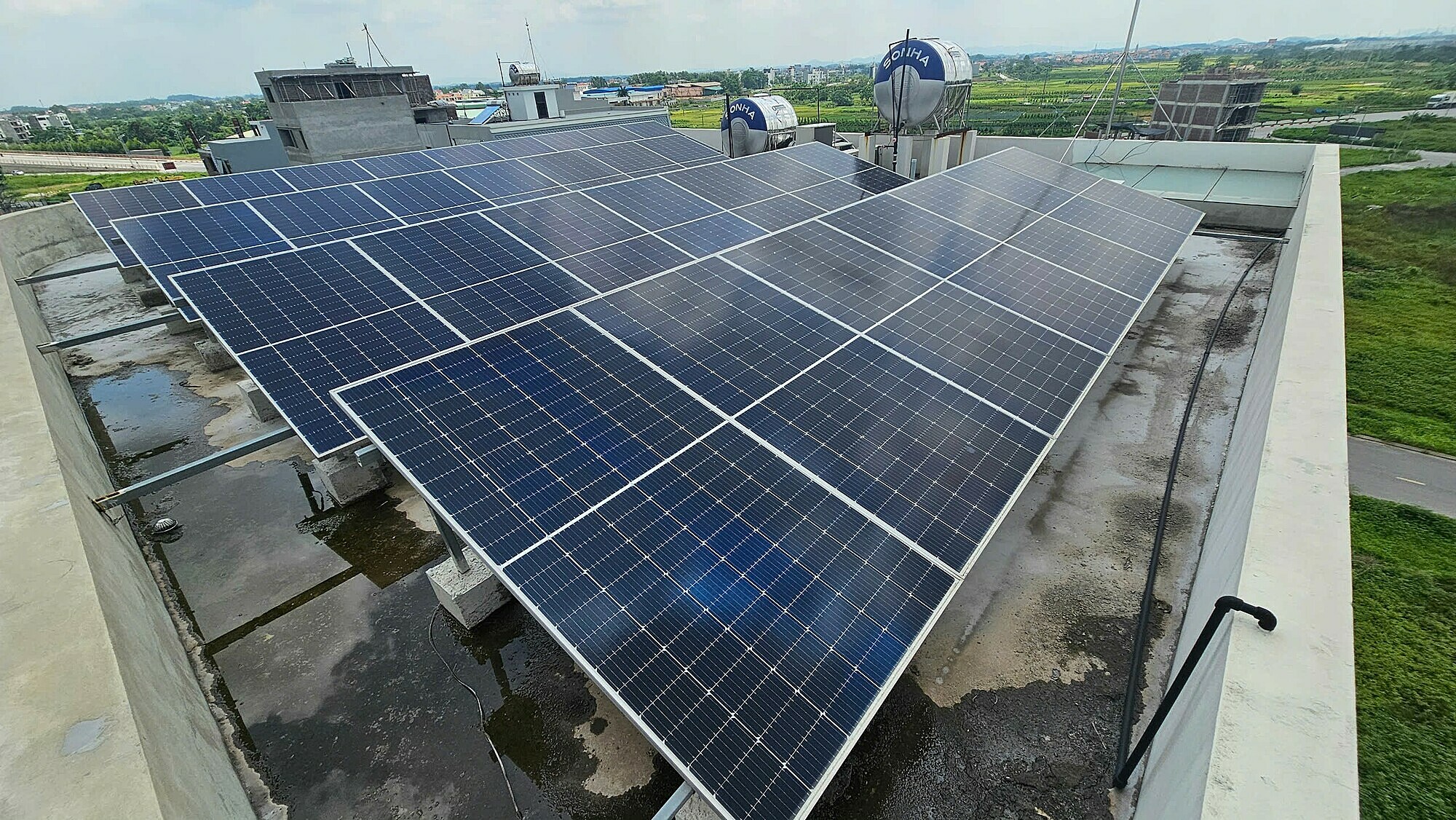The MoIT outlined the proposal in a draft decision submitted to the Prime Minister regarding support policies for households installing rooftop solar power systems for self-consumption and electricity storage.
The MoIT proposes a subsidy of up to 500,000 VND per kilowatt-peak (kWp) of installed capacity, capped at 2.5 million VND per household. The policy is proposed to be in effect until 1/1/2031.
Households could also receive subsidized interest rates on commercial loans for these systems. The proposed interest rate would match short-term lending rates offered by commercial banks. The interest rate subsidy would last for a maximum of three years from the initial loan disbursement date. The maximum loan amount would be 7 million VND per kWp, up to a total of 35 million VND per household.
 |
A rooftop solar power system at a household in northern Vietnam, June 2025. Photo: Phuong Anh |
Funding for the subsidies would come from local government development investment budgets. Each year, provincial People's Committees would submit their proposed financial support levels to the People's Council for approval, ensuring alignment with provincial budgets and local demand for household solar systems.
Beyond financial incentives, the government also plans to provide technical assistance to households for the installation, operation, and maintenance of rooftop solar. Local power companies would offer guidance on grid connection, control systems, monitoring, safety measures, and installation procedures.
For households wishing to sell excess electricity back to the national grid, local power companies would assist with installing bi-directional electricity meters and guide them through the contract process.
Communal People's Committees would provide guidance on structural safety designs, fire prevention, and fire-fighting measures. Households would be responsible for the accuracy of their application information, and for using certified equipment and materials that meet current technical standards and regulations.
Households would also be required to comply with fire safety, electrical safety, and environmental regulations during the operation of their rooftop solar systems and storage units. They would also commit to using the subsidies for their intended purpose.
Vietnam currently has around 103,000 rooftop solar projects, with a total installed capacity of over 9,500 MW. Under the adjusted Power Development Plan VIII, Vietnam aims to have 50% of office buildings and 50% of households using self-generated rooftop solar power by 2030.
Phuong Dung












